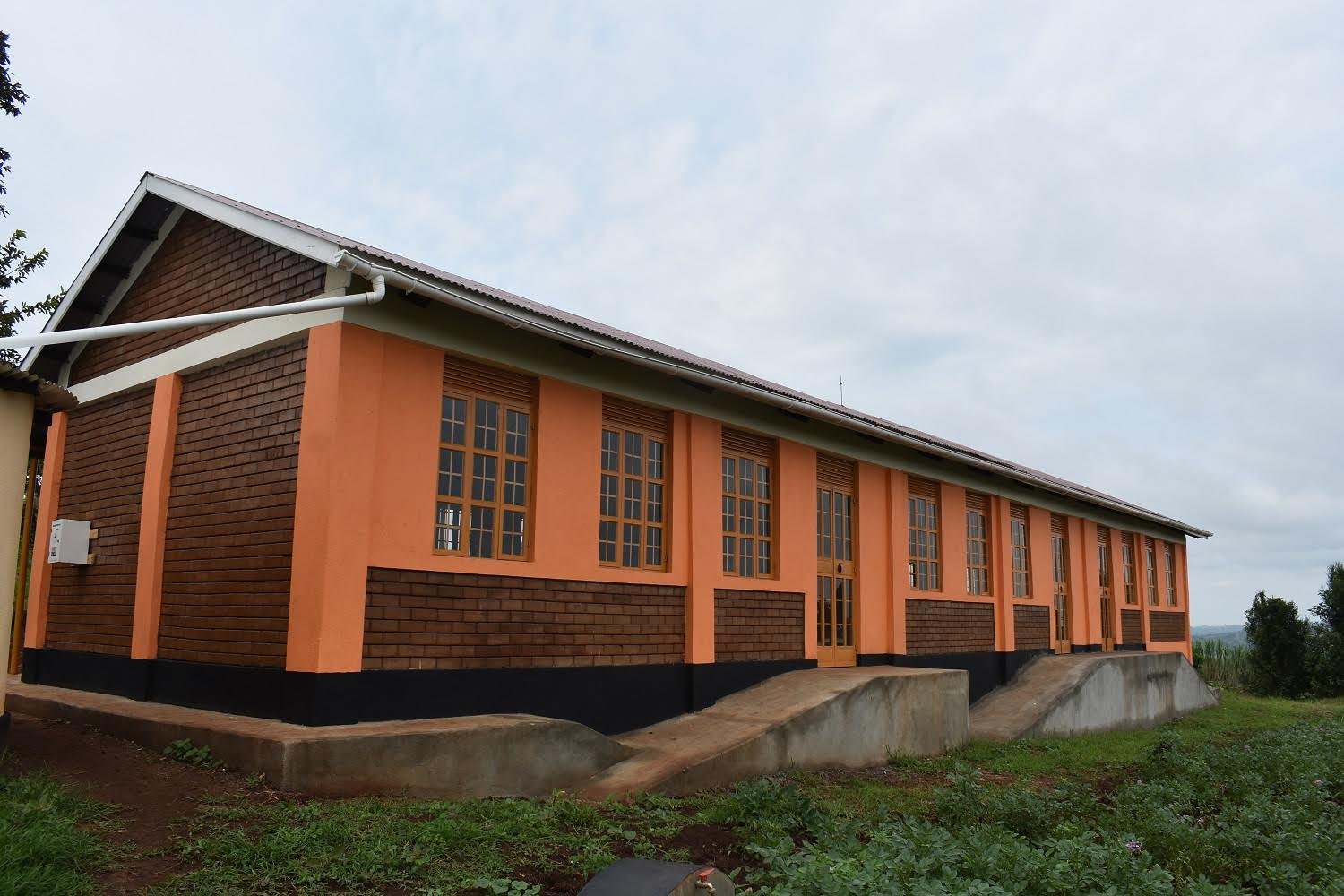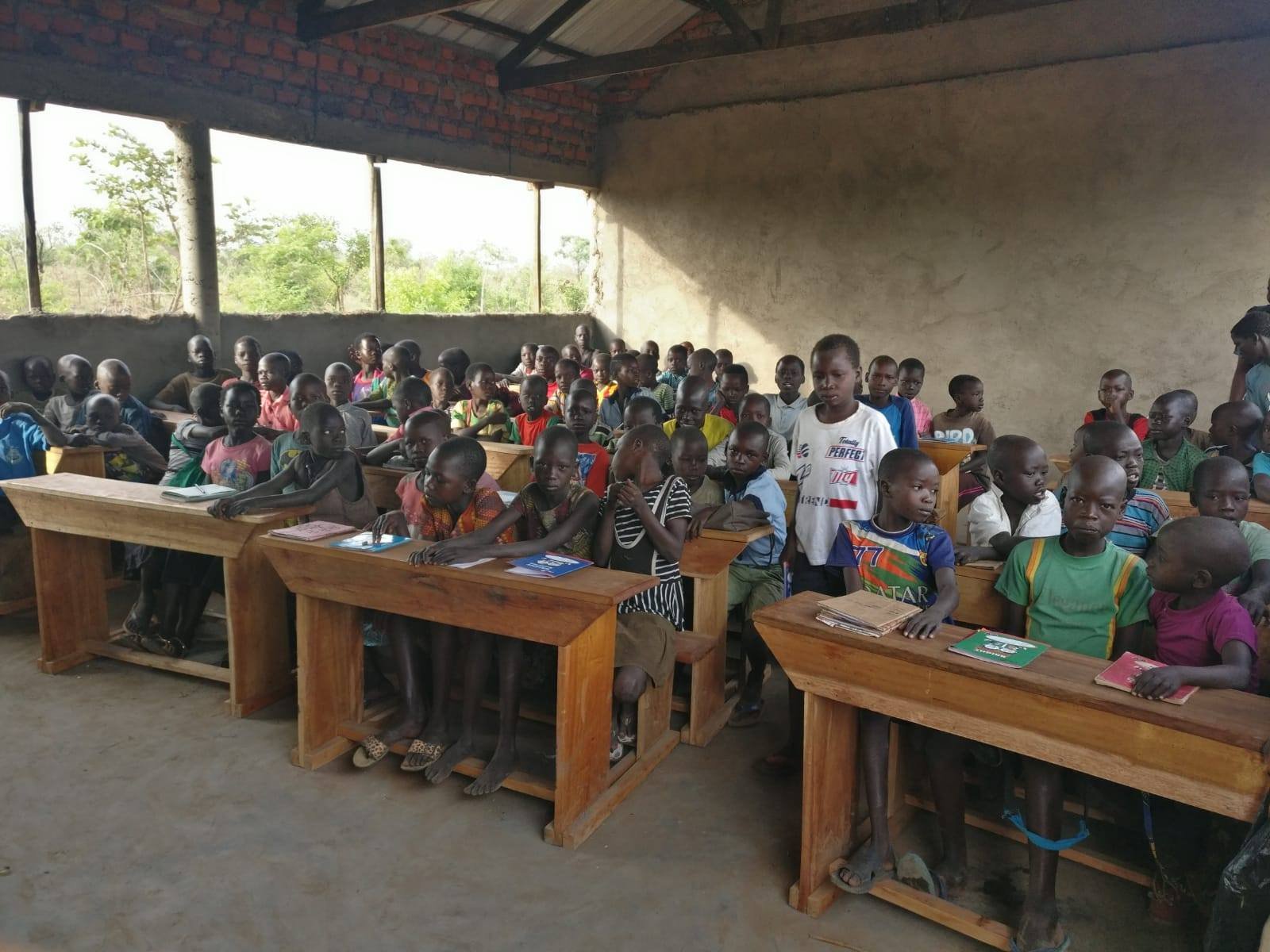
Kathy Stigman’s Carson Glore Bright Future School - Est. 2022
3 classrooms, 8 latrines, 3 water tanks, new desks & school supplies
The new Kathy Stigman’s Carson Glore Bright Future School will support 1,000 children with three new classrooms, desks, five latrine blocks including private girls latrines and wash facilities for safety, and rainwater harvesting tanks.
Classroom Sponsors
Dr. James & Dr. Barbara Glore Classroom
Ron Bunnell & Scott Coulter Classroom
Pam Miller, Faith Simonson, Jill Kurtz, Hilery Klein & Nancy Nerland Classroom
Latrine Sponsors
Third Drop Coffee Private Latrines
Classrooms of Desks Sponsors
Jeanne & Jerry Anderson Classroom of Desk
Steve & Laurie Klefstad Classroom of Desk
Paul Granum Classroom of Desks
Three Water Tanks Sponsored by
Longfellow School Rainwater Tanks
Water, Sanitation and Hygiene (WASH) facilities - Est. 2023
8 latrines, 2 water tanks, new desks & Menstrual hygiene kits
WASH facilities for 1,712 students at Progressive Elementary School and 1,000 students at Bright Future School, both in Palabek refugee settlement, Uganda.
Water, Sanitation and Hygiene (WASH) facilities often bear the brunt of overcrowding and reduced resources, and across the settlement each school latrine stance on average caters for more than 80 children. This is well above the Government standard of one stance for 45 learners, and the increased demand has resulted in unhygienic bathroom facilities for learners. Many children therefore resort to using the bushes, which is not only unhygienic but also exposes them to increased protection risks. For girls, this is an even bigger issue as the facilities do not cater for them to manage their periods.
Gender-sensitive Latrine Block - Boys
Gender-sensitive Latrine Block - Girls
Water Tank
Water Tank
800 Menstrual hygiene kits & health club training
Carson Glore Bright Future School
The ‘Carson Glore Bright Future School,’ Carson Glore Foundation’s fourth school, was constructed and opened in 2022 in Zone 8 of the Palabek Refugee Settlement in Uganda. The new school will support 1,000 children with three new classrooms, desks, five latrine blocks including private girls latrines and wash facilities for safety, and rainwater harvesting tanks.
The new classrooms will be built using eco-friendly interlocking brick technology, known as Interlocking Stabilized Soil Blocks (ISSB). These are a significantly more eco-friendly alternative to kiln-fired bricks as they do not have to be fired in a kiln, so they do not deplete forests or burn fossil fuels and have a much smaller carbon footprint. The blocks also use less cement and are better insulated against extreme temperatures.
Grace, 11 years old
a student at a neighboring Progressive Primary elementary school in Palabek, Uganda. Before our partners, Street Child, built the school, Grace was walking two hours to school and back every day along a route which was dangerous, particularly for children, and one which made her very tired. Her favorite subject is math, and one day she would like to be a doctor. Now she is back in school, she believes this is possible for her future.
Uganda is host to the world’s fastest growing refugee influx with 1.4 million people who have fled across the borders from South Sudan, Democratic Republic of the Congo (DRC), and Burundi, due to ongoing conflict. Palebek Refugee Settlement, a fully independent settlement, opened in 2017 housing around 63,000 refugees in the first seven zones and receives around 6-10 new households each day. These increasing numbers have prompted the settlement to expand into two new zones – Zones 8 and 9 – where our new school will reside.
Zone 8 has a total occupancy of 2,424 refugees, 58% of whom are children of school-going age (4-18). There is currently a temporary structure funded by UNHCR but has no water point at the school and no latrines so children are reported to be using the nearby bushes. There are no materials for either teaching or learning, no blackboard, no furniture, and no principal or school management infrastructure. Without privacy for girl children, there is high absence when girls are menstruating, and there are no child protection systems supporting the school.
Education is a priority for the Government of Uganda, but years of conflict coupled with the refugee crisis has left hundreds of thousands of children out-of-school. Uganda has one of the most progressive and inclusive immigration policies in the world, and promises all refugees the chance to access education, the right to work, and land to farm. The Ugandan Government is addressing the education crisis for refugees by ensuring that the most-marginalized children have access to quality learning with English as the official language of instruction so the first piece of our intervention is to swiftly support all refugees to learn English so they can successfully engage in education in host community schools.
To ensure that girls have equitable access to education we ensure that all school buildings have private latrines and wash facilities, to avoid missing school due to menstruation, and / or to stop girls dropping out at puberty because they fear sexual violence or harassment in open or mixed bathrooms.

Progressive Primary School, a flagship Palabek school in neighboring Zone 5, opened in February 2019
















